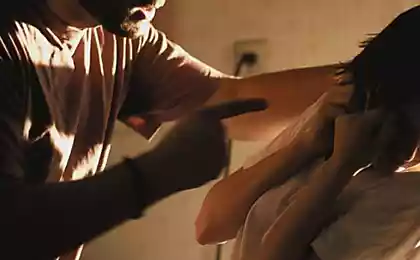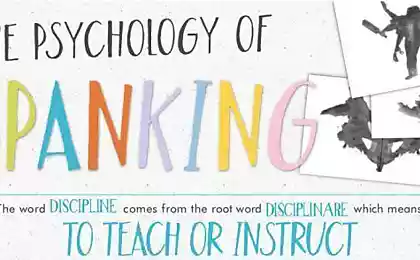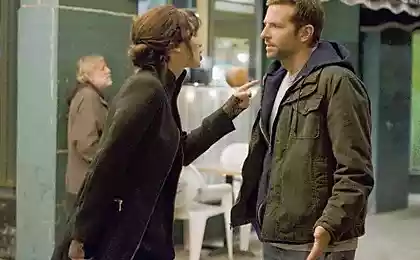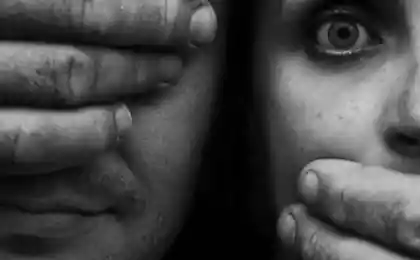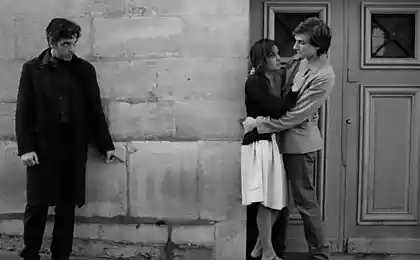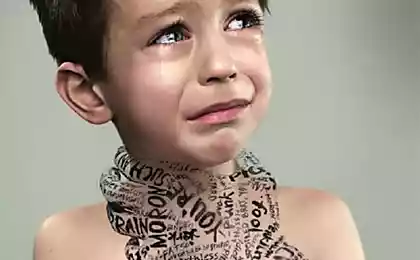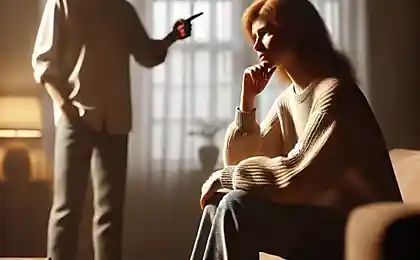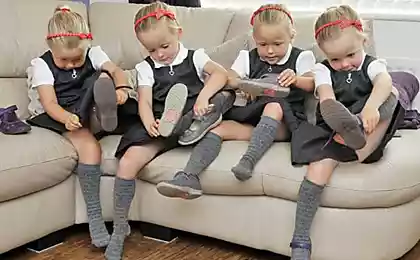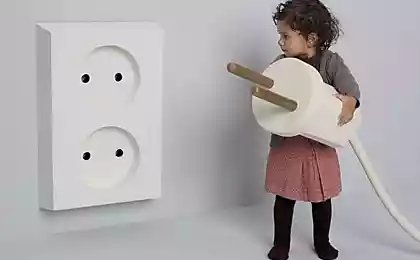586
What to do if the teacher has
Forty three million forty one thousand two hundred twenty eight
PROFESSIONAL DEGRADATION
Teachers have a kind of humor. Sometimes rude, I have to admit. Sometimes say, how cut off, "the plain truth" to the student. Examples of such statements could be cited. It happens that the teacher insults a student, calling him "rag", "idiot", "shit", making dire predictions "in prison to rot", "the garbage bucket." In the course of humiliation to one or all students.
One of the parents told me that the teacher wrote on the forehead of the student-a second grader, "fool" and forced to stand in front of the class. Someone for the slightest fault one makes the whole class to work standing for 45 minutes. Physical effects also to the force breaking line of hand and head, butting pointer. This is not a complete list of what can educators.
I haven't worked in school, but last years worked as a psychologist in kindergartens. Much saw with my own eyes. Yelled at the kids they were written. Exhibited in the "circle of shame" and beaten on the hands, when the baby and washed it, forgetting to roll up their sleeves. Endowed children insulting epithets, claiming that "they do not understand anything". The preschool teachers are so used to behave that did not hesitate even me, a psychologist. From the first garden I left because of the behavior of teachers was considered normal and I was "one soldier in the field". In another garden, including my effort was dismissed two teachers, and with the rest constantly worked on the "humanizing" of relations with children.
Why am I telling you all this? To you, the parents, were on the alert. Well, if you make sure that your teacher is a good professional who can find the measures of the rascals fails to cross the boundary of law and ethics. But it may be different. It is important to keep "abreast".
WOULD THE CHILD?
While the child is in kindergarten, everything is more complicated. Babies aren't very good at expressing your thoughts, and in the younger group and did a lot of "non-verbal" children. Therefore the child can be, and am glad to say, but can not. In five or six years many things change, and the child should not be "empty words". Since the age of seven children have a more realistic assessment of the situation. But why they can be silent for months, not to mention the parents that the teacher is cruel to them?
The first reason – you need time to sort out. In the "risk group" on blagosklonnost teachers of hyperactive children, which reduced self-control, constantly moving violators of discipline; "unruly" children who have difficulties with mastering of social norms and rules. Such children are often abused at home. Therefore, when faced with rude teachers, for them it becomes a gimmick. And to distinguish pedagogical instruction from outright cruelty, they can not immediately.
The second reason – I'm afraid "get a double portion." The logic of a child is that I am often scolded and punished at home. The teacher also scolds me and punishes. So they at the same time. Parents must not talk in any case, otherwise you will get infraction again. Silent poor guy, not even knowing that their parents would be willing to give the teacher the back.
The third reason is afraid of revenge of the teacher. The child in the least think about the fact that you can switch to another class or school and get rid of the communication with the hated teacher. No, he thinks about how to survive in this situation. And her logic dictates "to remain silent" so as not to cause even more anger. The more that teachers are hedged, introducing into children's heads maxims about how it's not nice to be a tattle tail.
The reason the fourth lost contact with their parents. If the child does not believe that you can do something to help, it will not appeal to you. The causes of what is already a seven-year child may not trust the parents, now we will not discuss. But every parent intuitively can tell whether there is contact or not. What child can tell the parents that against him or others become cruel? These are children who are not taught that "the adult is always right", but rather put in mind that may be different. Children who are able to say "no", including adult. These are children whose parents said, "If you hurt children, I can only help by the Council; if the adult is going to talk to me." By the beginning of schooling such a child, as a rule, had already been discussing such issues (especially if they visited a garden). And a very high probability that it will come to you in a difficult situation.
WHERE TO LOOK?
To start with, remembering that the child may remain silent, you need to know what signals you should pay attention. You should be wary if a child does not want to go to school, seek out any ways to avoid this; ...is experiencing a "strange" pain in the abdomen or the head, appearing in the morning; ...on the child's body there were bruises and abrasions, the origin of which you do not know; ...became the "other": introverted and/or anxious, sullen, whiny; ...reluctant to talks about how was the school day. Of course, all these symptoms can speak not only about what the child offends the teacher. But all this clearly indicates the problems associated with the school, and in any case, you need to understand what is happening.
You need to consider that if the teacher permits the physical or moral violence against the child, then that makes him an outcast in the class, and classmates begin to scoff at him behind the teacher who will not do anything to protect it. Try to talk to the child. In detail ask, how was your day at school or in the garden. In that play and what was learned. What we liked and what not. With the child of preschool and younger school age can play in the "garden" and "school." For those children who consider themselves to be adults for such games, we can offer a verbal game. You ask the situation, such as "Peter of the lesson talking to his friend. The teacher saw this and said...". Let the child will continue for teachers. The probability that he will give exactly what he sees in the classroom, is very high. 10-15 situations – and you will know what a school day. Just try to take a neutral reaction to "closed". And, of course, if the child directly talks about what his hurt words or actions of a teacher, you should respond. Perhaps his story will be understood that the teacher was strict but ethical. Then it will be enough to discuss the situation with a child (just to discuss, not to blame and punish!), so the next time he was not afraid to address you. If a teacher's actions angered you, it's time to meet with the offender.
LIKE SAYING?
It is important to respect the chain of command and first go to the teacher. If the situation is not improving – to the Director, and then to the "higher authorities" and the police. In this case, you exclude the possibility to inflate a conflict on an empty place, if it turns out that the child had embellished the situation or just made it up (which also happens). Before speaking with the teacher, try to tune in a calm and professional tone. Extra emotions interfere with your story, and perception of the situation. Do not think that if you burn with righteous anger, it will sound more convincing and you'll be able to scare the teacher. That's not what you aim at, isn't it? The most important is to understand the situation and ensure the welfare of the child. Well, if during a conversation the child is not around. If the conversation is sharp, he may lose all respect for the teacher, and it will only worsen the situation. If you are going to definitely transfer him to another teacher, you must ensure that respect was maintained.
EXPERT OPINION WHAT HAPPENS BETWEEN US?
A growing number of violent conflicts in our lives testifies to the fact that people are different! The differences are huge – different values, different meanings, upbringing, education, cultural level, different views on life in General. It is therefore very important to be able to communicate, find a common language. Communication is the basis of human interaction with man. The sad fact – many adults do not know how to communicate. Whether it be a mother, a teacher, a parent or a President.
But learning to communicate is easy. Communication requires three skill:
to feel and be aware of yourself (who am I, what am I?),
to see the other (who is he, what's he like?),
understanding of the process (what happens between us?).
If all three work, then the person is able to feel his dignity, to see the dignity of another and to teach the other. This scheme works provided that Person is Value, no matter who the person is a baby or a teacher.
©Sophia Age, child psychologist, family therapist, gestalttherapie.
Say not "hinted". If you are concerned about a particular fact about him worth talking to. Describe the situation as you said the child. Listen to the version teacher. You may hear a lot of excuses for her action and also unpleasant about your child. The reaction is much to understand whether a person is prone to moral and physical aggression, or not. Mark plans. Ask your teacher how you all work together on the problem. Not only the child, but the teacher too! What's she going to do next in a similar situation, in order not to affect the dignity of the child? You need to get a specific answer. Remind the teacher that if the situation persists, you will contact the Director, you decide, based on the specific situation of communication. Most often this is not required. If the teacher sees that his relationship to the child by the parents and the parents take an active role and he understands what will happen next. If a teacher is adequate in his professionalism, he will seek other approaches to the child and the incident will be considered a temporary phenomenon. If the teacher is cruel and does not know how differently it will simply switch to another student. You can often hear the recommendation, in a conflict situation to bring the teacher "lamb in a piece of paper" – to placate the present. Kind of like you can do is have a serious conversation. But such a gesture, the teacher may be perceived as indulgence, the parent, to the hard treatment of the child. Simple conditional relationship: I did something – and received a pleasant stimulus. Hence, the right way to go! Parents, counting on the fact that after the gifts, the teacher will become more loyal to their child, are often surprised to learn that handling becomes worse.
SO... If your child is exposed to violence, moral or physical, on the part of teachers, the position of the "head in sand" is not for you. Do not pull, go on a direct and honest conversation with the teacher and school administration. It was noticed that teachers who are prone to violence, "do not touch" those children whose parents actively watch both child welfare and action against the teacher. In other words, if parents care about the child and it is obvious that, if necessary, can "take action", their child is unlikely to be a "scapegoat" at the teacher. Consolidate with other parents. If your child did you know that hurt some of his classmates, talk to your parents accident. Not only for the "foreign" child. For the sake of his too. Kids harden soul, you lose the right guidance if they see the cruelty of adults, even not addressed to them. Even the most notorious bully, can rein in, not reaching up to battering. It is important that your child feel parental support, and be sure that you will be able to protect him from those with whom it is too early to fight himself.
Julia Vasilkina
istochnikami
Source: /users/1077
PROFESSIONAL DEGRADATION
Teachers have a kind of humor. Sometimes rude, I have to admit. Sometimes say, how cut off, "the plain truth" to the student. Examples of such statements could be cited. It happens that the teacher insults a student, calling him "rag", "idiot", "shit", making dire predictions "in prison to rot", "the garbage bucket." In the course of humiliation to one or all students.
One of the parents told me that the teacher wrote on the forehead of the student-a second grader, "fool" and forced to stand in front of the class. Someone for the slightest fault one makes the whole class to work standing for 45 minutes. Physical effects also to the force breaking line of hand and head, butting pointer. This is not a complete list of what can educators.
I haven't worked in school, but last years worked as a psychologist in kindergartens. Much saw with my own eyes. Yelled at the kids they were written. Exhibited in the "circle of shame" and beaten on the hands, when the baby and washed it, forgetting to roll up their sleeves. Endowed children insulting epithets, claiming that "they do not understand anything". The preschool teachers are so used to behave that did not hesitate even me, a psychologist. From the first garden I left because of the behavior of teachers was considered normal and I was "one soldier in the field". In another garden, including my effort was dismissed two teachers, and with the rest constantly worked on the "humanizing" of relations with children.
Why am I telling you all this? To you, the parents, were on the alert. Well, if you make sure that your teacher is a good professional who can find the measures of the rascals fails to cross the boundary of law and ethics. But it may be different. It is important to keep "abreast".
WOULD THE CHILD?
While the child is in kindergarten, everything is more complicated. Babies aren't very good at expressing your thoughts, and in the younger group and did a lot of "non-verbal" children. Therefore the child can be, and am glad to say, but can not. In five or six years many things change, and the child should not be "empty words". Since the age of seven children have a more realistic assessment of the situation. But why they can be silent for months, not to mention the parents that the teacher is cruel to them?
The first reason – you need time to sort out. In the "risk group" on blagosklonnost teachers of hyperactive children, which reduced self-control, constantly moving violators of discipline; "unruly" children who have difficulties with mastering of social norms and rules. Such children are often abused at home. Therefore, when faced with rude teachers, for them it becomes a gimmick. And to distinguish pedagogical instruction from outright cruelty, they can not immediately.
The second reason – I'm afraid "get a double portion." The logic of a child is that I am often scolded and punished at home. The teacher also scolds me and punishes. So they at the same time. Parents must not talk in any case, otherwise you will get infraction again. Silent poor guy, not even knowing that their parents would be willing to give the teacher the back.
The third reason is afraid of revenge of the teacher. The child in the least think about the fact that you can switch to another class or school and get rid of the communication with the hated teacher. No, he thinks about how to survive in this situation. And her logic dictates "to remain silent" so as not to cause even more anger. The more that teachers are hedged, introducing into children's heads maxims about how it's not nice to be a tattle tail.
The reason the fourth lost contact with their parents. If the child does not believe that you can do something to help, it will not appeal to you. The causes of what is already a seven-year child may not trust the parents, now we will not discuss. But every parent intuitively can tell whether there is contact or not. What child can tell the parents that against him or others become cruel? These are children who are not taught that "the adult is always right", but rather put in mind that may be different. Children who are able to say "no", including adult. These are children whose parents said, "If you hurt children, I can only help by the Council; if the adult is going to talk to me." By the beginning of schooling such a child, as a rule, had already been discussing such issues (especially if they visited a garden). And a very high probability that it will come to you in a difficult situation.
WHERE TO LOOK?
To start with, remembering that the child may remain silent, you need to know what signals you should pay attention. You should be wary if a child does not want to go to school, seek out any ways to avoid this; ...is experiencing a "strange" pain in the abdomen or the head, appearing in the morning; ...on the child's body there were bruises and abrasions, the origin of which you do not know; ...became the "other": introverted and/or anxious, sullen, whiny; ...reluctant to talks about how was the school day. Of course, all these symptoms can speak not only about what the child offends the teacher. But all this clearly indicates the problems associated with the school, and in any case, you need to understand what is happening.
You need to consider that if the teacher permits the physical or moral violence against the child, then that makes him an outcast in the class, and classmates begin to scoff at him behind the teacher who will not do anything to protect it. Try to talk to the child. In detail ask, how was your day at school or in the garden. In that play and what was learned. What we liked and what not. With the child of preschool and younger school age can play in the "garden" and "school." For those children who consider themselves to be adults for such games, we can offer a verbal game. You ask the situation, such as "Peter of the lesson talking to his friend. The teacher saw this and said...". Let the child will continue for teachers. The probability that he will give exactly what he sees in the classroom, is very high. 10-15 situations – and you will know what a school day. Just try to take a neutral reaction to "closed". And, of course, if the child directly talks about what his hurt words or actions of a teacher, you should respond. Perhaps his story will be understood that the teacher was strict but ethical. Then it will be enough to discuss the situation with a child (just to discuss, not to blame and punish!), so the next time he was not afraid to address you. If a teacher's actions angered you, it's time to meet with the offender.
LIKE SAYING?
It is important to respect the chain of command and first go to the teacher. If the situation is not improving – to the Director, and then to the "higher authorities" and the police. In this case, you exclude the possibility to inflate a conflict on an empty place, if it turns out that the child had embellished the situation or just made it up (which also happens). Before speaking with the teacher, try to tune in a calm and professional tone. Extra emotions interfere with your story, and perception of the situation. Do not think that if you burn with righteous anger, it will sound more convincing and you'll be able to scare the teacher. That's not what you aim at, isn't it? The most important is to understand the situation and ensure the welfare of the child. Well, if during a conversation the child is not around. If the conversation is sharp, he may lose all respect for the teacher, and it will only worsen the situation. If you are going to definitely transfer him to another teacher, you must ensure that respect was maintained.
EXPERT OPINION WHAT HAPPENS BETWEEN US?
A growing number of violent conflicts in our lives testifies to the fact that people are different! The differences are huge – different values, different meanings, upbringing, education, cultural level, different views on life in General. It is therefore very important to be able to communicate, find a common language. Communication is the basis of human interaction with man. The sad fact – many adults do not know how to communicate. Whether it be a mother, a teacher, a parent or a President.
But learning to communicate is easy. Communication requires three skill:
to feel and be aware of yourself (who am I, what am I?),
to see the other (who is he, what's he like?),
understanding of the process (what happens between us?).
If all three work, then the person is able to feel his dignity, to see the dignity of another and to teach the other. This scheme works provided that Person is Value, no matter who the person is a baby or a teacher.
©Sophia Age, child psychologist, family therapist, gestalttherapie.
Say not "hinted". If you are concerned about a particular fact about him worth talking to. Describe the situation as you said the child. Listen to the version teacher. You may hear a lot of excuses for her action and also unpleasant about your child. The reaction is much to understand whether a person is prone to moral and physical aggression, or not. Mark plans. Ask your teacher how you all work together on the problem. Not only the child, but the teacher too! What's she going to do next in a similar situation, in order not to affect the dignity of the child? You need to get a specific answer. Remind the teacher that if the situation persists, you will contact the Director, you decide, based on the specific situation of communication. Most often this is not required. If the teacher sees that his relationship to the child by the parents and the parents take an active role and he understands what will happen next. If a teacher is adequate in his professionalism, he will seek other approaches to the child and the incident will be considered a temporary phenomenon. If the teacher is cruel and does not know how differently it will simply switch to another student. You can often hear the recommendation, in a conflict situation to bring the teacher "lamb in a piece of paper" – to placate the present. Kind of like you can do is have a serious conversation. But such a gesture, the teacher may be perceived as indulgence, the parent, to the hard treatment of the child. Simple conditional relationship: I did something – and received a pleasant stimulus. Hence, the right way to go! Parents, counting on the fact that after the gifts, the teacher will become more loyal to their child, are often surprised to learn that handling becomes worse.
SO... If your child is exposed to violence, moral or physical, on the part of teachers, the position of the "head in sand" is not for you. Do not pull, go on a direct and honest conversation with the teacher and school administration. It was noticed that teachers who are prone to violence, "do not touch" those children whose parents actively watch both child welfare and action against the teacher. In other words, if parents care about the child and it is obvious that, if necessary, can "take action", their child is unlikely to be a "scapegoat" at the teacher. Consolidate with other parents. If your child did you know that hurt some of his classmates, talk to your parents accident. Not only for the "foreign" child. For the sake of his too. Kids harden soul, you lose the right guidance if they see the cruelty of adults, even not addressed to them. Even the most notorious bully, can rein in, not reaching up to battering. It is important that your child feel parental support, and be sure that you will be able to protect him from those with whom it is too early to fight himself.
Julia Vasilkina
istochnikami
Source: /users/1077
Secrets of the preparations for the winter carrot
Tables for which you need to stand, increase the concentration in children
